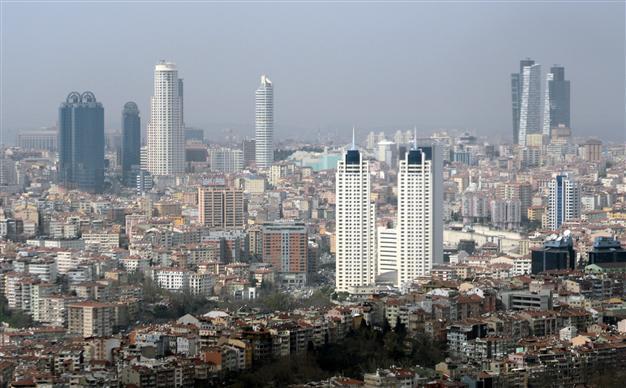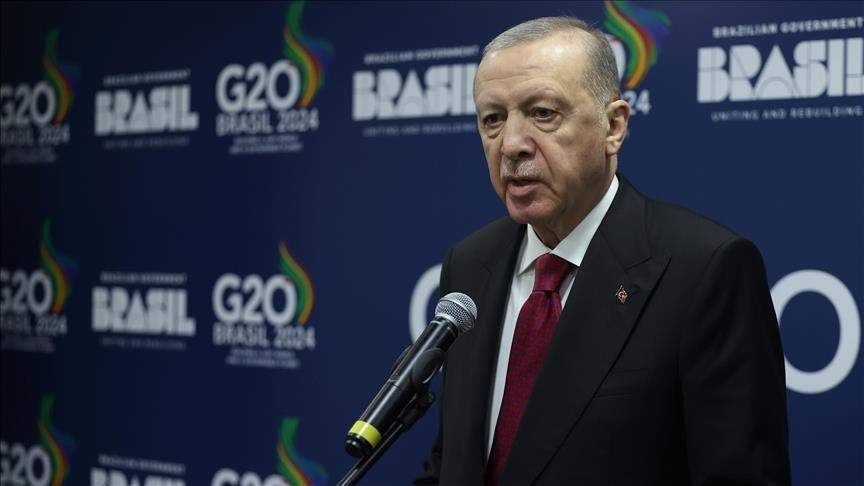Turkey’s economic growth accelerates in second quarter
ISTANBUL – Hürriyet Daily News

Daily News Photo, Emrah Gürel
The Turkish economy grew at a faster-than-expected pace in the second quarter thanks to soaring domestic demand and increasing public spending, but ministers are continuing to issue cautious statements.The country’s gross domestic product (GDP) expanded by 4.4 percent in the second quarter compared to the same period last year, up from 2.9 percent the previous quarter, according to data announced by the Turkish Statistical Institute (TÜİK).
The average of data estimations predicting the figures had come in at around 3.5 percent, while even the most optimistic estimations came in at around 4.2 percent, with few expecting the country to post such a high growth rate.
As TÜİK revised first-quarter growth data downward to 2.9 percent from 3 percent, the overall growth of the economy appeared to be 3.7 percent in the first half of the year.
The government has been expecting overall 2013 growth to be around 4 percent in its medium-term program. However, the most recent developments – a steep drop in capital inflows and the devaluation of the Turkish Lira due to concerns the U.S. Federal Reserve will abandon pumping liquidity in markets – caused ministers to lower their estimations.
Economy Minister Zafer Çağlayan has said they will revise the data, as they now expect GDP to grow between 3 and 4 percent.
The government is officially expecting growth of 4 percent this year and 5 percent next, but ministers have recently talked down the outlook for 2013.
“Foreign economic developments will begin to affect our growth in the third quarter.
We do not expect their impact to be very deep, but we will be affected by them in the second half of 2013 and maybe at the start of 2014,” Çağlayan said in a statement.
Cautious hopes among ministers
Speaking in an interview after the GDP data announcement, Çağlayan also said he would not alter his prediction, adding that he was hopeful the final figure would be closer to 4 percent.
Deputy PM Ali Babacan said in a statement yesterday that the Turkish economy had grown faster than expected due to the high base effect of gold exports in 2012 and gold imports in the first half of 2013.
He added that the expected rise in exports, aside from gold exports, were likely to positively affect the growth rate in the second half, along with the relative economic recovery in the European Union.
However, the structure of the growth continues to worry economists and policymakers, with an almost $60 billion current account gap due to huge fuel imports, making Turkey exposed to swings in global money flows and oil prices.
“The bad news is that the data does not show much evidence of rebalancing,” Timothy Ash, head of emerging market research at Standard Bank, told Reuters. “Net exports were ... heavily negative, and suggest a continued vulnerability via the current account/external financing channel.”
















